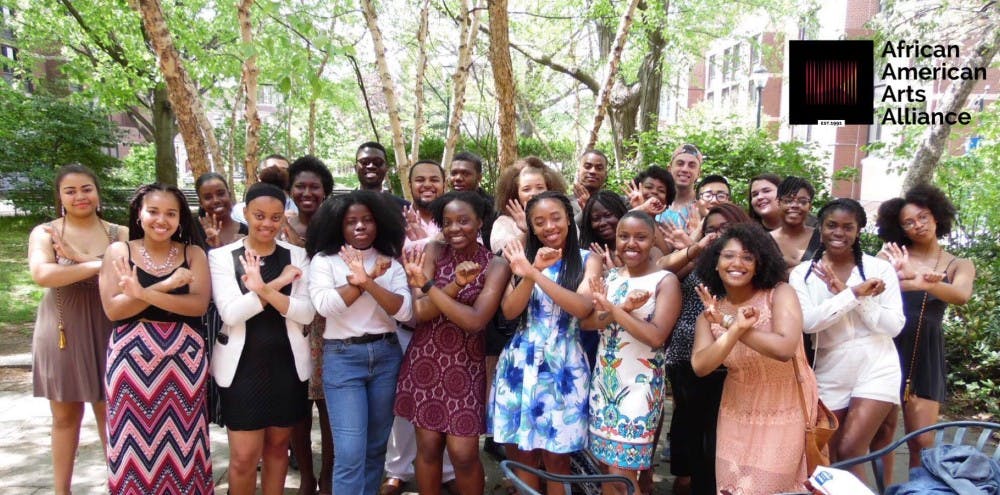If the Royal Shakespeare Company is the Top 40 of Spotify playlists, then the African American Arts Alliance, also known as "4A," at Penn is the indie alternative playlist. Maybe that's not the best analogy—or even a good one at that—but I make this comparison to show what 4A is all about: showcasing voices outside the mainstream.
As one of Penn’s fifty–some performing arts groups, what distinguishes 4A is distinguishes itself by focusing on promoting an awareness of black culture through the arts, specifically through theater. With each of its shows, it tackles issues of race, gender, and class—all of which are clearly intertwined with one another. For a group specific to a singular form of culture, it demonstrates the pluralism of that culture in its intersections with many others.
While many activist organizations also have similar missions, 4A achieves this goal through the arts—by showing and not telling. For example, the fall show in 2016 “She Like Girls” followed a low–income black family with a queer daughter. “The Colored Museum” last semester presented different “exhibits” of black culture, one of which highlighted a black drag queen. The spring show this year “Stick Fly” centered around a wealthy black family vacationing in their summer home on Martha’s Vineyard. While “She Like Girls” saw the mother taking issue with her queer daughter, the family reaction in “Stick Fly” is, well, relatively absent. Not absent in the sense that the family doesn’t care about the queerness, but that it’s not the main issue. In a way, the evolution of how queerness is portrayed in 4A shows is a means to normalize it.
Essentially, this is the goal of 4A: to represent the black community across the spectrum of black voices. “[Blackness] is not a pigeon hole. It’s a Pandora’s Box and everything you want it to be,” Kai Kornegay (C ’18), co–director of the production, says. Their affirmation of such words is reflected in their work also with the activist community. Each year, they host 4A Café, inviting individuals from all across campus to share their forms of art, whether that be poetry, the spoken word, singing, or acting. 4A also previously worked with Students Organizing for Unity and Liberation (SOUL) and Queer People of Color (QPOC) to host a discussion on how to tackle homophobia within the black community.
The reason behind this is that “it just makes sense to support people,” Kai explains. “This is a group that champions and celebrates blackness, but there are so many other identities that play into that. So it comes down to realizing that liberation for us is tied to the liberation of everyone else.” The educational factor imbued in each event, show, or activist discussion is clearly a priority. “I just want people to walk away feeling like they’ve learned the value of listening,” Kai explains. “To get people asking themselves ‘how can I be more intentional to seek out opportunities to hear those stories?”
While 4A is a performing arts group, like many other groups, it’s really a family. For Misan Aviomoh, a junior exchange student from University College London and producer of the show, 4A has given her the “space to be yourself and be comfortable.” It’s what she describes as “an opportunity to challenge myself.”
If you missed their show this past weekend, mark your calendars for 4A Cafe: We Still Here on April 25.

